Following The Film Stage’s collective top 50 films of 2022, as part of our year-end coverage, our contributors are sharing their personal top 10 lists.
It occurred to me in 2022 that the films of Steven Spielberg have been there my entire life. I watched the three Indiana Jones films, E.T. the Extra-Terrestrial, and Jaws, among others, on nearly every sick day. The opening of Jurassic Park on June 9, 1993, was a major event on my calendar as a 13-year-old. So was the opening of Schindler’s List later that year.
This lifetime of Spielberg-ia culminated in two key events in 2022. The first was seeing E.T. on the big screen over the summer with my 12-year-old son, during its recent re-release. I’ve seen E.T. countless times over the years, but at the cinema, it was a revelation. And my goodness: the final chunk is as emotionally overwhelming to me as a fortysomething as it was when I was a young cinephile-in-the-making.
The second event was attending the world premiere of The Fabelmans at the Toronto International Film Festival in September. My attendance at the world premiere of Glass Onion directly preceding Fabelmans meant I literally plopped down in my balcony seat (about two rows from the top of the Princess of Wales Theatre) as the Amblin logo bicycled onto the screen. Yes, I missed Steve. But after the film––which, as you will see on my list, I adored––Spielberg made his triumphant reappearance. Being in the same room as the master filmmaker was a meaningful moment for me, and that feeling was not diminished by The Fabelmans’ disappointing box office showing. That night, I felt like a kid again. Thanks for that, Mr. Spielberg. And thanks for making The Fabelmans.
Now, on to my picks for the fifteen finest films of 2022, a list which could just as easily include One Fine Morning, Emergency, Decision to Leave, Corsage, The Innocents, Top Gun: Maverick, Benediction, Speak No Evil, Hit the Road, The Batman, Happening, Glass Onion: A Knives Out Mystery, Cow, Fire of Love, and many, many more.
Honorable mentions: TÁR, Nope, After Yang, The Banshees of Inisherin, Moonage Daydream
10 & 9. Pearl and X (Ti West)
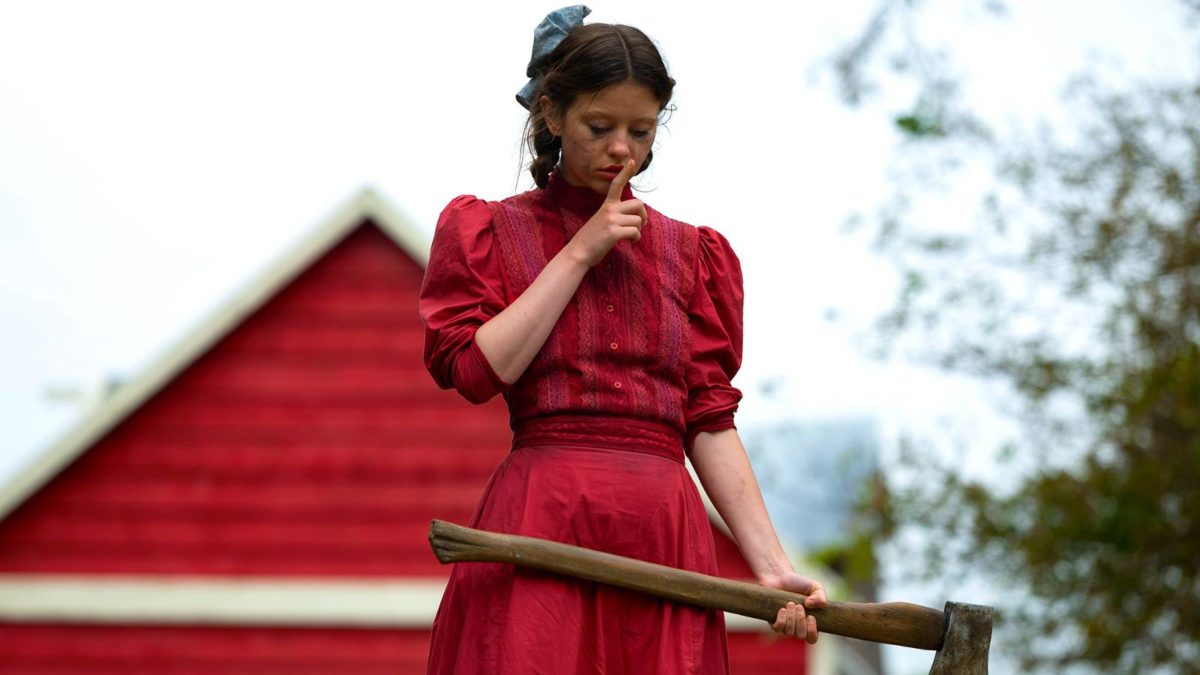
One of the most delightful cinematic developments of 2022 was the critical and audience reception to Ti West’s X, a slasher period piece that somehow also qualifies as a commentary on art, religion, misogyny, and even beauty. Anchored by a startling Mia Goth and also featuring phenomenal performances from Brittany Snow and Jenna Ortega, X was an earth-shaking horror experience. Its sequel, Pearl, held even more surprises. It also has a far greater emotional impact. There is no doubt that Ti West is an upper-echelon filmmaker. And in Pearl especially, Mia Goth gave an unsettling performance that is truly unforgettable.
8. The Girl and the Spider (Ramon Zürcher)
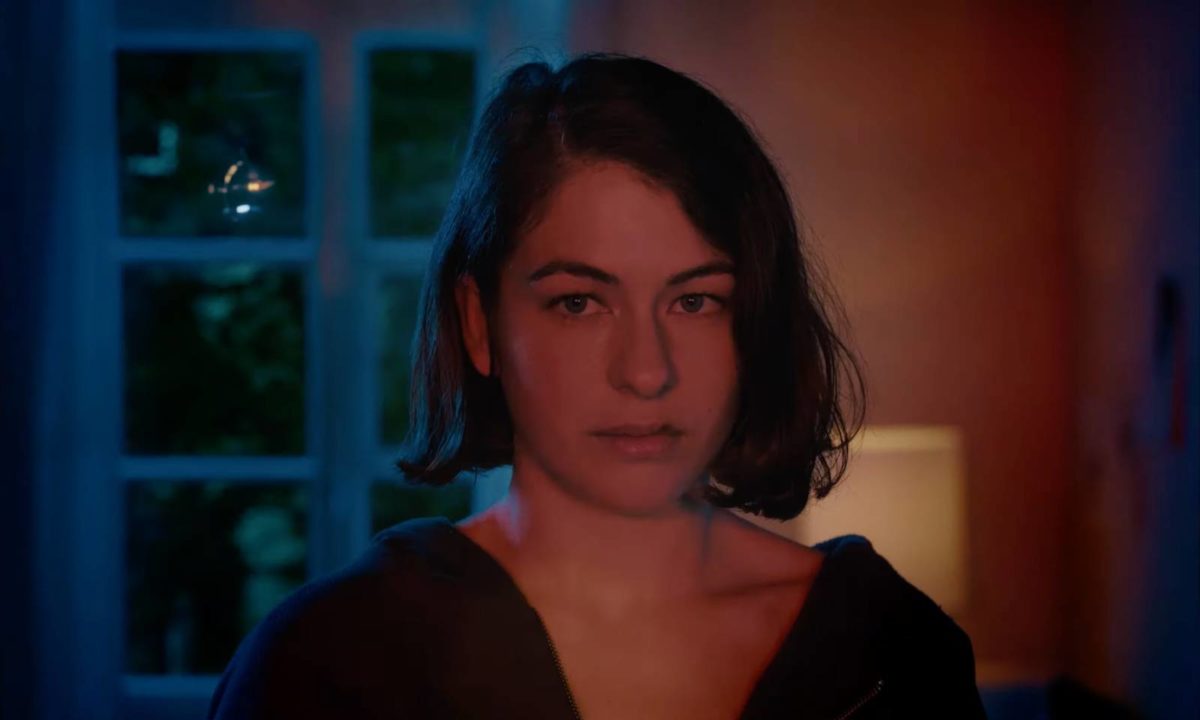
Ostensibly the story of a Berlin family preparing for its evening dinner as a cat wanders the apartment, The Strange Little Cat was among the most beguiling films of the early-to-mid 2010s. With The Girl and the Spider, director Ramon Zürcher returns, with brother Silvan Zürcher as co-director. (The latter produced The Strange Little Cat.) Spider is equally captivating––a mesmerizing, uniquely ambiguous study of friendship, rivalry, tension, and memory. It is difficult to remember another recent film that does so much with so little in the way of plot and location. Ramon and Silvan Zürcher have crafted an extraordinarily patient, emotionally probing, deeply moving film that engages with and profoundly understands the complexities of life. Yes, very little happens; that makes occurrences even more resonant. Spider’s lovely concluding shot stands as the filmmakers’ final statement on the fleeting nature of love in all its forms. It is both bitter and sweet. So is this beautiful film.
7. The Eternal Daughter (Joanna Hogg)
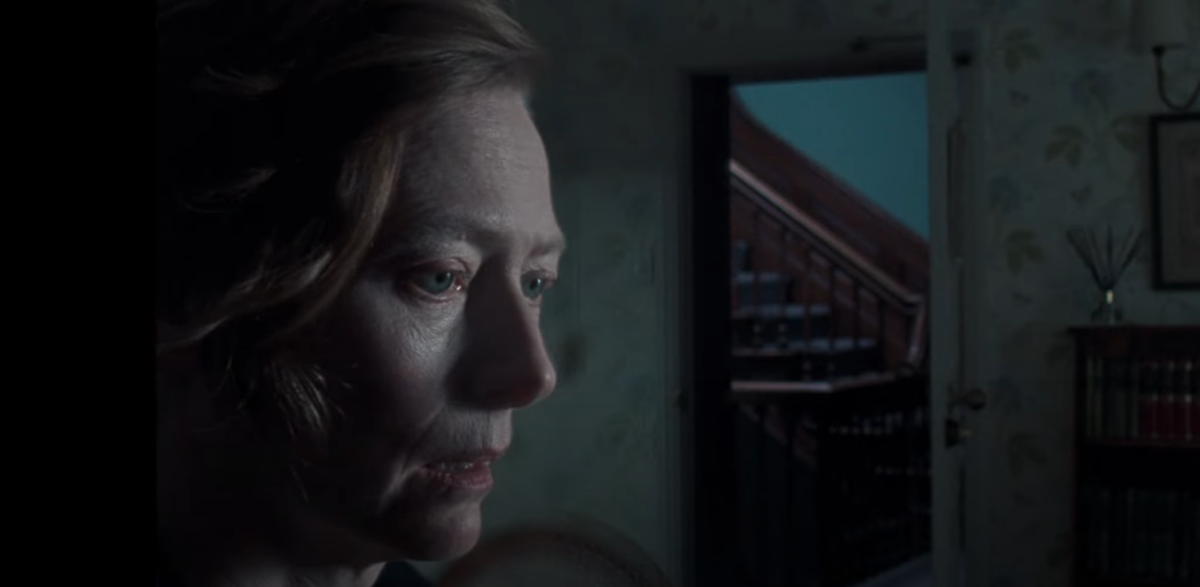
The latest from director Joanna Hogg is eerie, darkly funny, and dripping with menace and mystery. Hogg and star Tilda Swinton are on a years-long roll at this point, and somehow The Eternal Daughter even tops The Souvenir and The Souvenir Part II. The sense of sadness and regret present in The Souvenirs manifests itself in triumphant dual performances from Swinton as daughter and mother. Daughter also features an impressive animal performance from Louis, a spirited spaniel who is apparently the real-life dog of star Tilda Swinton. (My favorite moment is a speedy, Shining-esque zoom onto a resting Louis.) The Eternal Daughter is also a film that proves just as compelling on second viewing. (You’ll see what I mean.) In that sense, it is greatly reminiscent of Todd Field’s TÁR. The (to me) incredibly insightful reading of TÁR by Slate’s Dan Kois has convinced me that the films would make a fascinating double bill. That being said, Louis is much more adorable than the menacing black dog staring back at Lydia Tár in that Berlin basement. Fingers crossed for a Louis / black-dog-from-TÁR buddy flick.
6. The Fabelmans (Steven Spielberg)
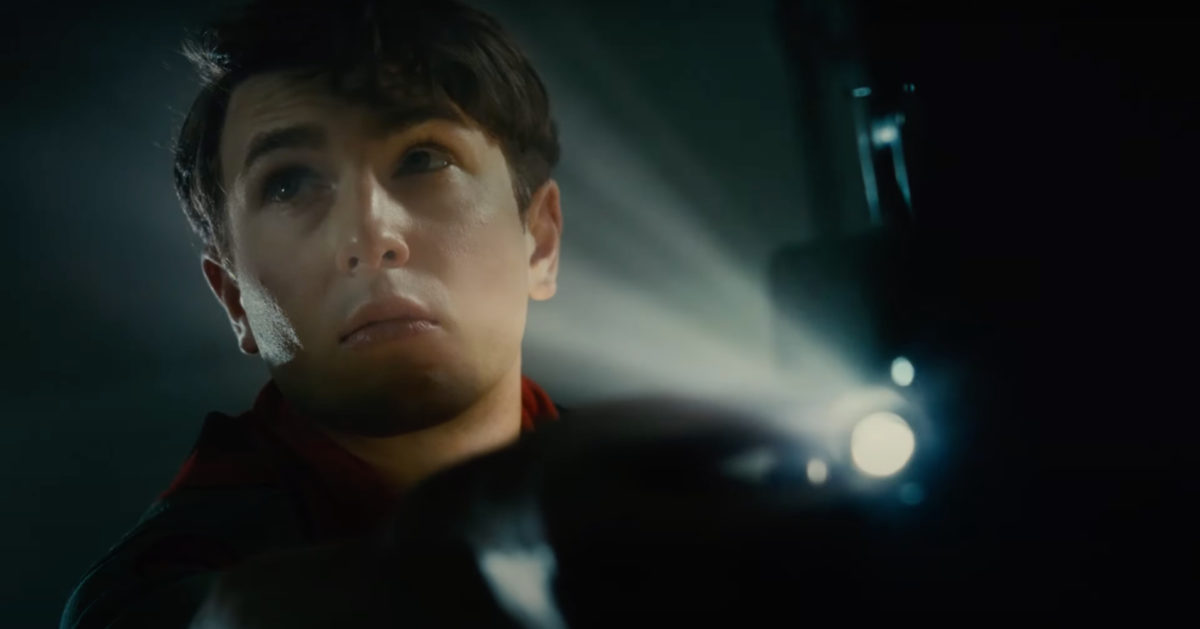
Judging from the pre-release information surrounding Steven Spielberg’s The Fabelmans, it was clear the endeavor could attain the label of the master director’s “most personal film.” This prediction was no lie. It is obviously personal, yes, but also deeply autobiographical. Any Spielberg fan knows these beats: an early fascination with cinema; the move to Arizona; a difficult parental dynamic, with a driven father and loving-but-conflicted mother; ambitious 8mm films made with sisters, neighbors, and anyone else willing to lend a hand; a much less pleasant move from Arizona to California; teenage years fueled by creativity, but also impacted by a feeling of outsider status; and, ultimately, the first steps into a world he would eventually dominate. The Fabelmans checks all boxes, but it is not merely Portrait of Spielberg as a Young Man. This is also a warm, moving drama about the need to make art, whatever its cost. Sam (Gabriel LaBelle), the Spielberg stand-in, sees no other option. Filmmaking is not, as his father maintains, “a hobby.” Nor is it passion he’ll push to the side for the sake of family, as his pianist mother was forced to. The Fabelmans is Spielberg’s explanation of why he is who he is, now and forever. It is also one of his richest, most rewarding family tales yet.
5. Bones and All (Luca Guadagnino)
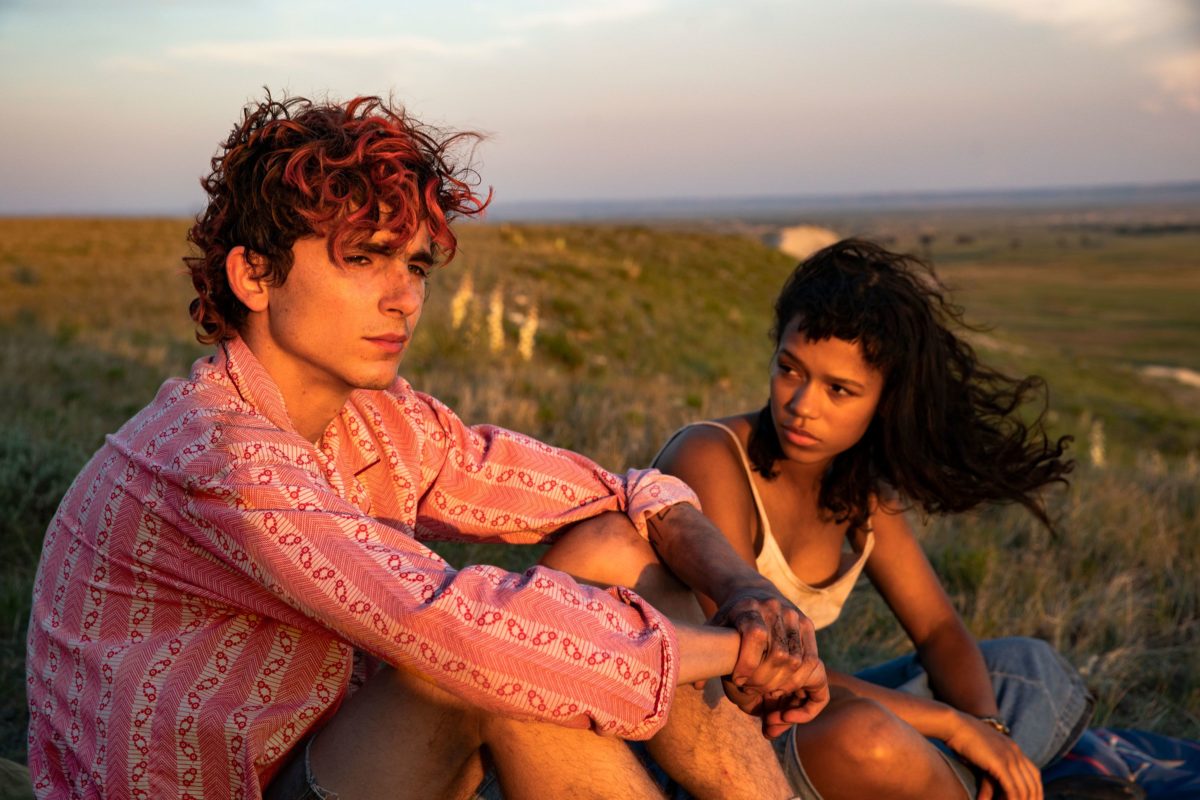
Luca Guadagnino’s Bones and All is many things—a horror movie about cannibalism, a story of young love, a road movie, a thriller about shadowy figures who watch from afar. Above all, though, it is an exploration of loneliness. Guadagnino has excelled at cinematic portrayals of loneliness before, in films as disparate as Call Me By Your Name and Suspiria. Bones and All is his most probing study of the subject to date. It is also his finest film, period. The script and the performers tiptoe on the edge of absurdity. (See, Mark Rylance.) However, Guadagnino and company know when to pull back. (Yes, even Mark Rylance.) Anchored by a mesmerizing Taylor Russell and featuring fine, moving work from Timothée Chalamet and, in smaller roles, André Holland and Jessica Harper, Bones is both a radical rethink of the “monsters-in-love” genre and a whip smart YA romance.
4. Aftersun (Charlotte Wells)
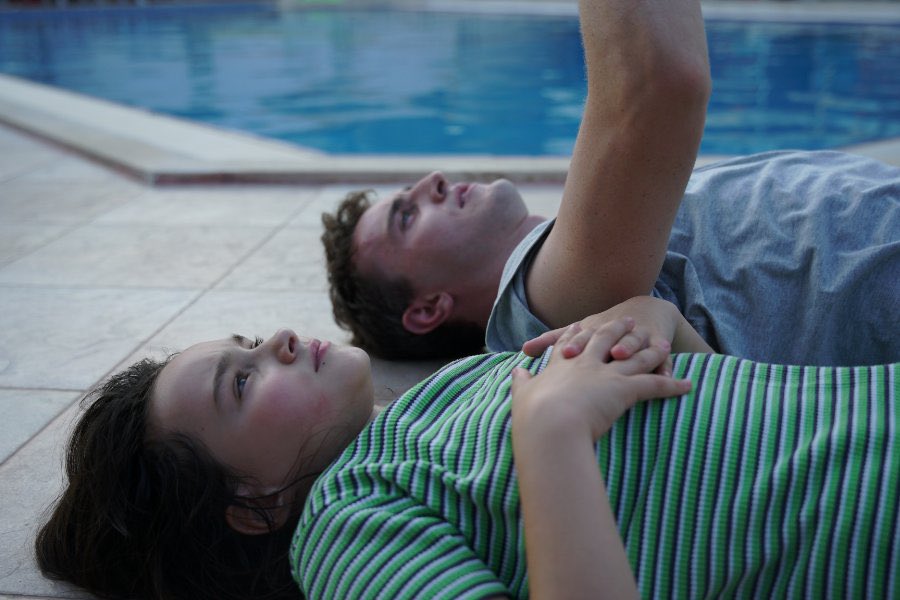
The buzz on Charlotte Wells’ Aftersun started at Cannes and spread to nearly every major fall festival this past fall. It was warranted. This story of a father and daughter is intimate and warm, but with a sharpness that is astonishing. Wells captures the mysteries of both parenthood and childhood in a manner that shook me to the core; how rare is it for a film to make the audience identify equally with parent and child? (Yes, being a parent of young children likely added to my connection with the material.) Stars Paul Mescal and Frankie Corio are subtle and stupendous, the song choices wise, and the sense of unease appropriate. Aftersun also offers the year’s most audacious closing shot—one that continues to haunt me.
3. All the Beauty and the Bloodshed (Laura Poitras)
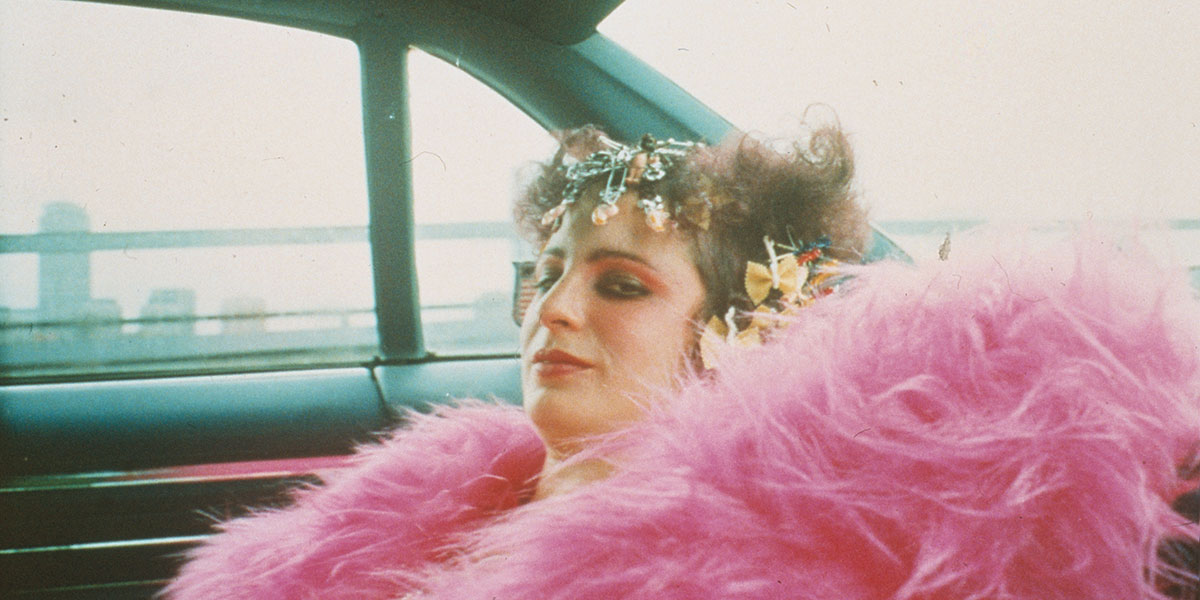
The most aesthetically beautiful moment in 2022 cinema comes early into Laura Poitras’ documentary study of artist Nan Goldin. The photographer has devoted much of her recent life to highlighting the role of the billionaire Sackler family in the devastating opioid epidemic. While destroying the lives of individuals and families around the world, the Sacklers also served as art benefactors. One of the most notable galleries to carry the Sackler name was the Guggenheim. On a busy night at the gallery, we watch as fake prescriptions rain down the Guggenheim’s winding ramps. It is startling, gorgeous, and full of meaning—just like Goldin’s work. (This is especially true of her evolving slideshow, The Ballad of Sexual Dependency.) All the Beauty and the Bloodshed shows that for Goldin, there is no line between her life and her art. A film about art, loss, and the stigmas that destroy lives, All the Beauty is a harrowing but ultimately empowering viewing experience.
2. Women Talking (Sarah Polley)
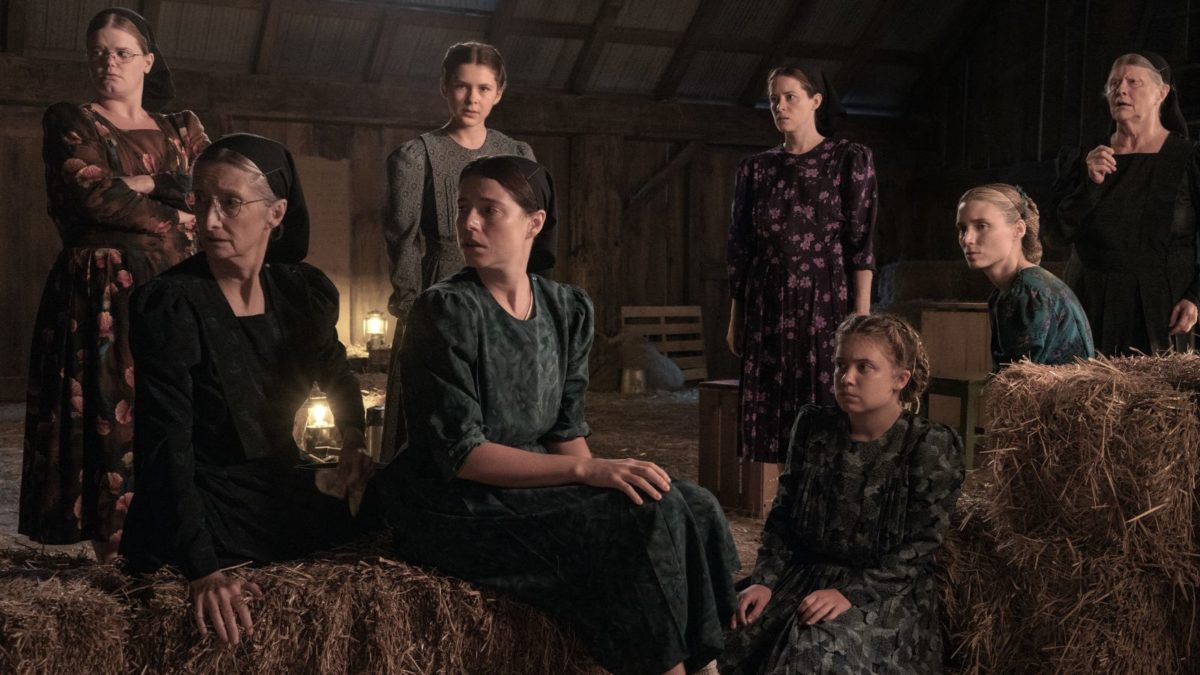
Sarah Polley’s adaptation of Miriam Toews’s novel is one of the most powerful, gut-wrenching, and genuinely haunting films of recent years. Its story of repeated, years-spanning sexual abuse in a religious colony, and the life-altering decision faced by its women, is deeply upsetting—and absolutely unforgettable. Polley has had an amazing career as an actor, writer, and director, and Women Talking is her most resonant and haunting narrative film to date. Between Women Talking and her deeply personal essay collection, Run Towards the Danger: Confrontations with a Body of Memory, Polley is operating at a level of artistic innovation that is downright remarkable. And, of course, when considering Women Talking one must mention its stellar lineup of actors, most notably Rooney Mara, Jessie Buckley, Claire Foy, Michelle McLeod, Judith Ivey, and Ben Whishaw.
1. Crimes of the Future (David Cronenberg)
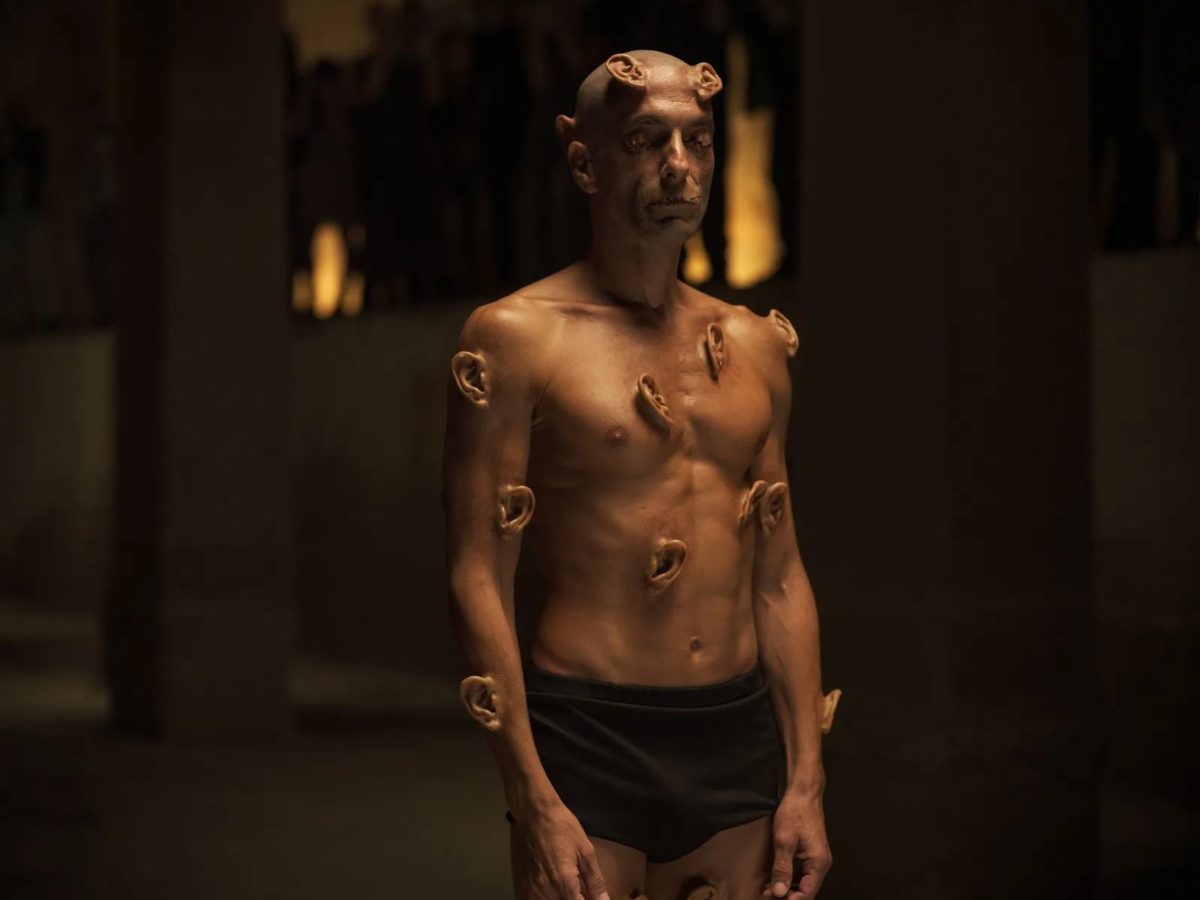
Full disclosure: David Cronenberg is the filmmaker whose work fascinates me most––and this is nothing new. As a 13-year-old my bedroom walls were adorned with Jim Kelly and Pat LaFontaine posters, along with an autographed picture of Cronenberg. The first DVD I ever purchased was the Criterion of Dead Ringers. And in the last two decades I have repeatedly returned to his work, finding resonance even in the films that originally left me cold (most notably Naked Lunch and M. Butterfly). So news that the master was embarking on his first film since Maps to the Stars was quite welcome. The resulting creation, Crimes of the Future, was every bit as profound, memorable, unsettling, entrancing as any Cronenberg film. It is a grand statement from one of our greatest living filmmakers on art, science, collaboration, and the body as a canvas. Featuring note-perfect performances from stars Viggo Mortensen, Léa Seydoux, and Kristen Stewart (delightfully cast against type), as well as one of Howard Shore’s best scores, Crimes is a film to be savored. In its final moments, Mortensen’s weakened performance artist, Saul Tenser, seems to move to a state of transcendence. So does the audience during this, the ending of the finest film of 2022. Indeed, the resonance of Crimes of the Future will be even greater in years to come. That is a scary thought––and a Cronenbergian one…
